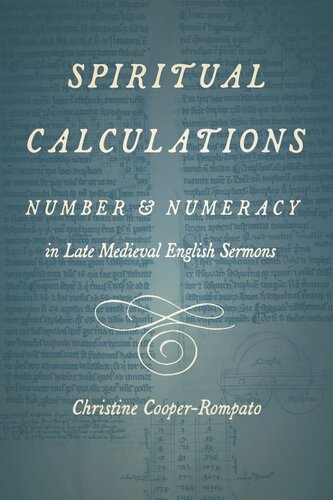

Most ebook files are in PDF format, so you can easily read them using various software such as Foxit Reader or directly on the Google Chrome browser.
Some ebook files are released by publishers in other formats such as .awz, .mobi, .epub, .fb2, etc. You may need to install specific software to read these formats on mobile/PC, such as Calibre.
Please read the tutorial at this link: https://ebookbell.com/faq
We offer FREE conversion to the popular formats you request; however, this may take some time. Therefore, right after payment, please email us, and we will try to provide the service as quickly as possible.
For some exceptional file formats or broken links (if any), please refrain from opening any disputes. Instead, email us first, and we will try to assist within a maximum of 6 hours.
EbookBell Team

4.1
90 reviewsMedieval English sermons teem with examples of quantitative reasoning, ranging from the arithmetical to the numerological, and regularly engage with numerical concepts. Examining sermons written in Middle English and Latin, this book reveals that popular English-speaking audiences were encouraged to engage in a wide range of numerate operations in their daily religious practices.
Medieval sermonists promoted numeracy as a way for audiences to appreciate divine truth. Their sermons educated audiences in a hybrid form of numerate practice—one that relied on individuals’ pragmatic quantitative reasoning, which, when combined with spiritual interpretations of numbers provided by the preacher, created a deep and rich sense in which number was the best way to approach the sacred mysteries of the world as well as to learn how one could best live as a Christian. Analyzing both published and previously unpublished sermonsand sermon cycles, Christine Cooper-Rompato explores the use of numbers, arithmetic, and other mathematical operations to better understand how medieval laypeople used math as a means to connect with God.
Spiritual Calculations enhances our understanding of medieval sermons and sheds new light on how receptive audiences were to this sophisticated rhetorical form. It will be welcomed by scholars of Middle English literature, medieval sermon studies, religious experience, and the history of mathematics.